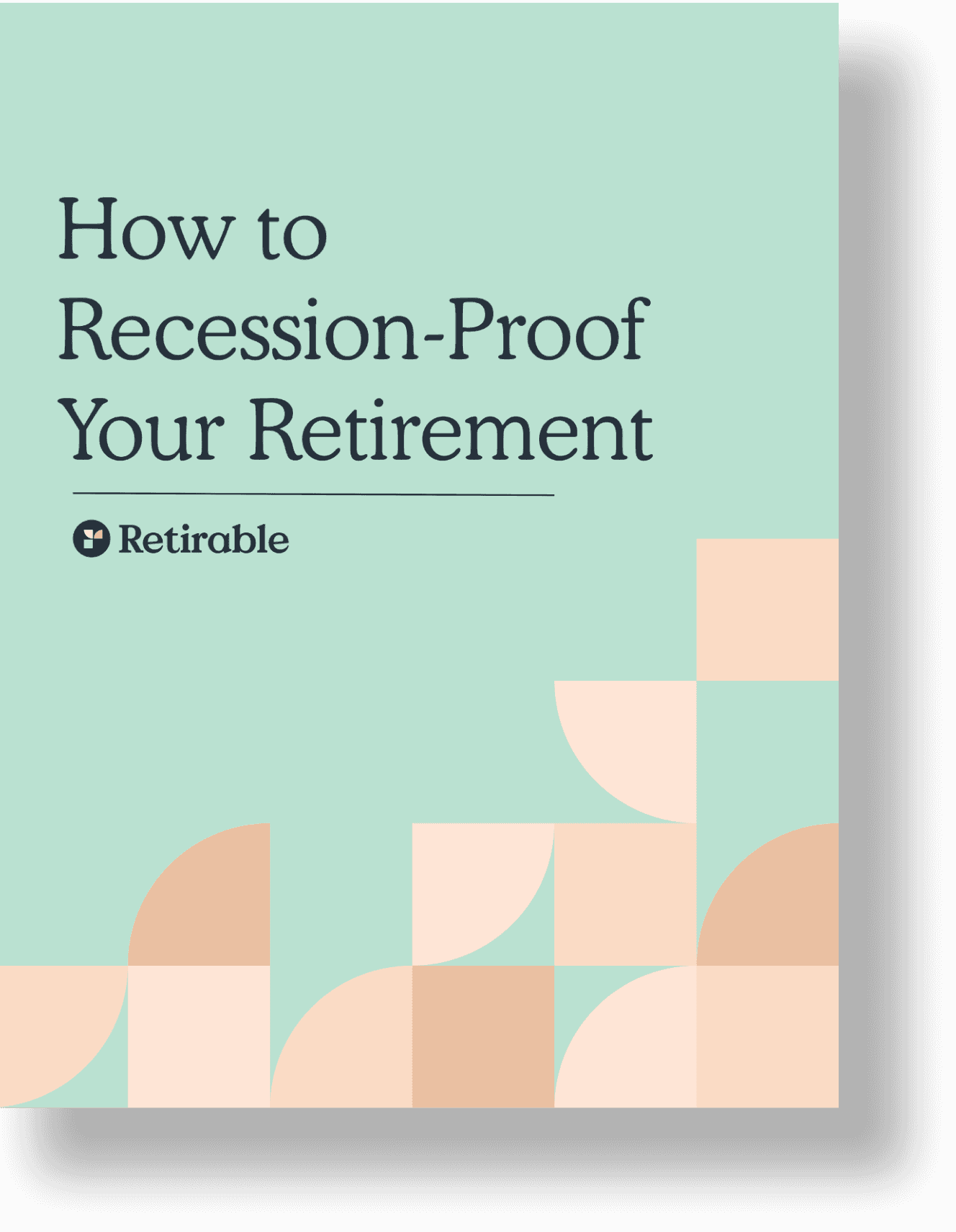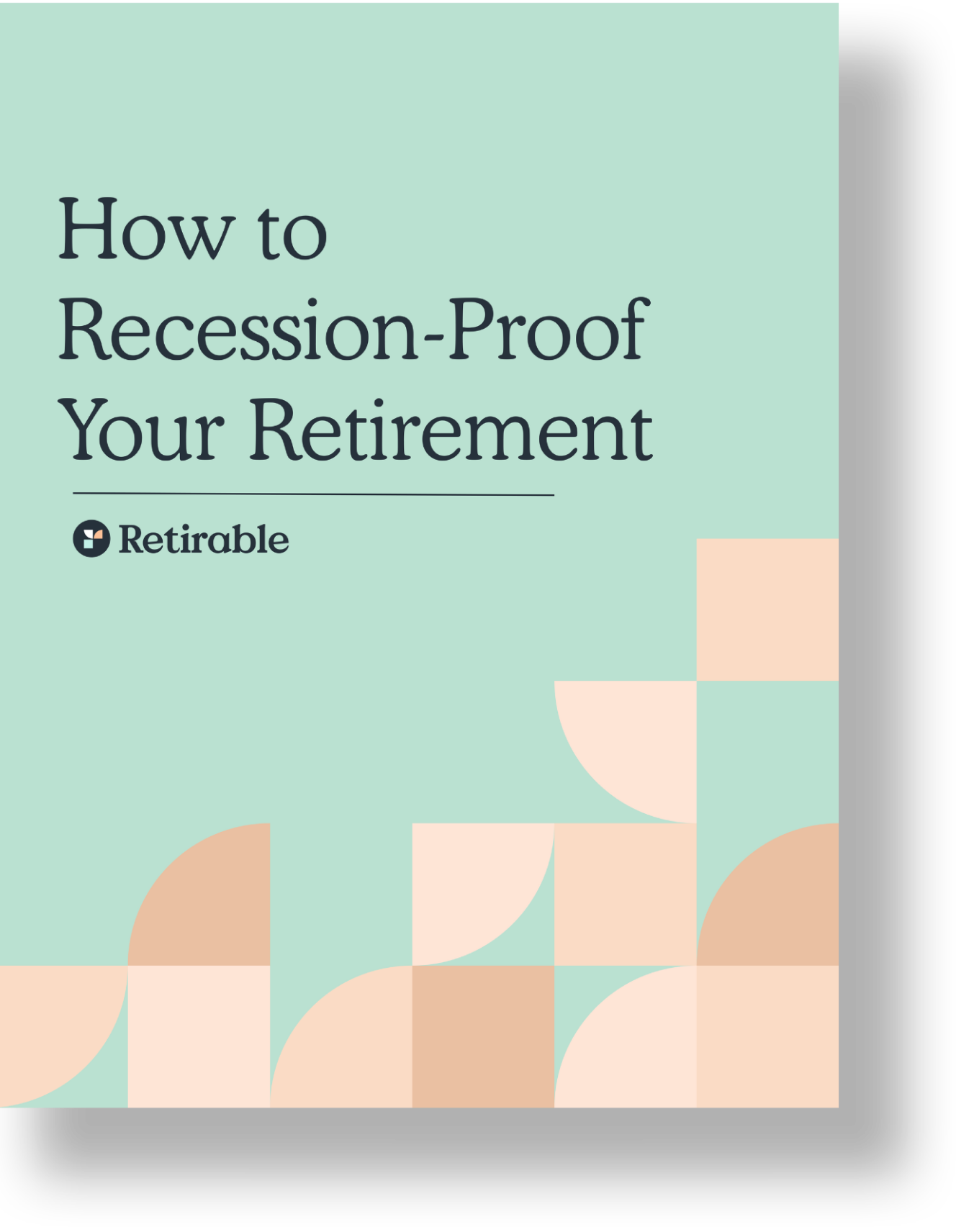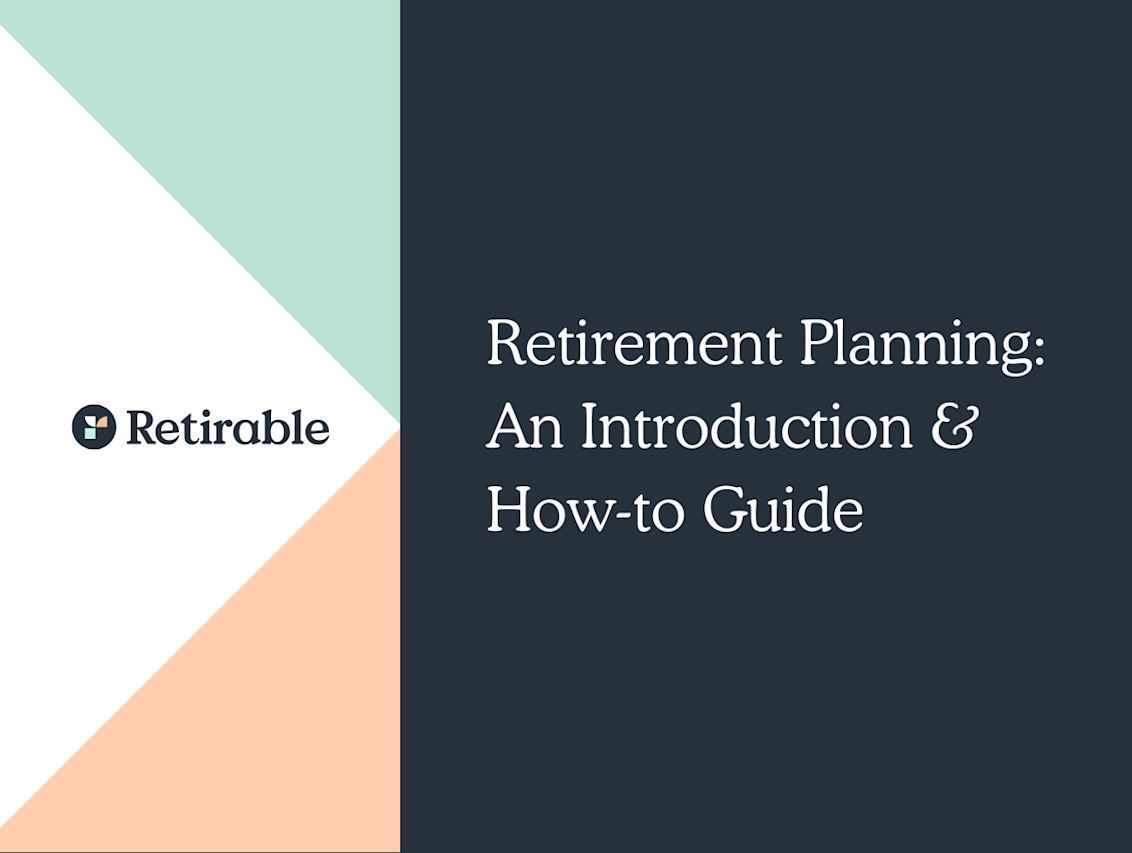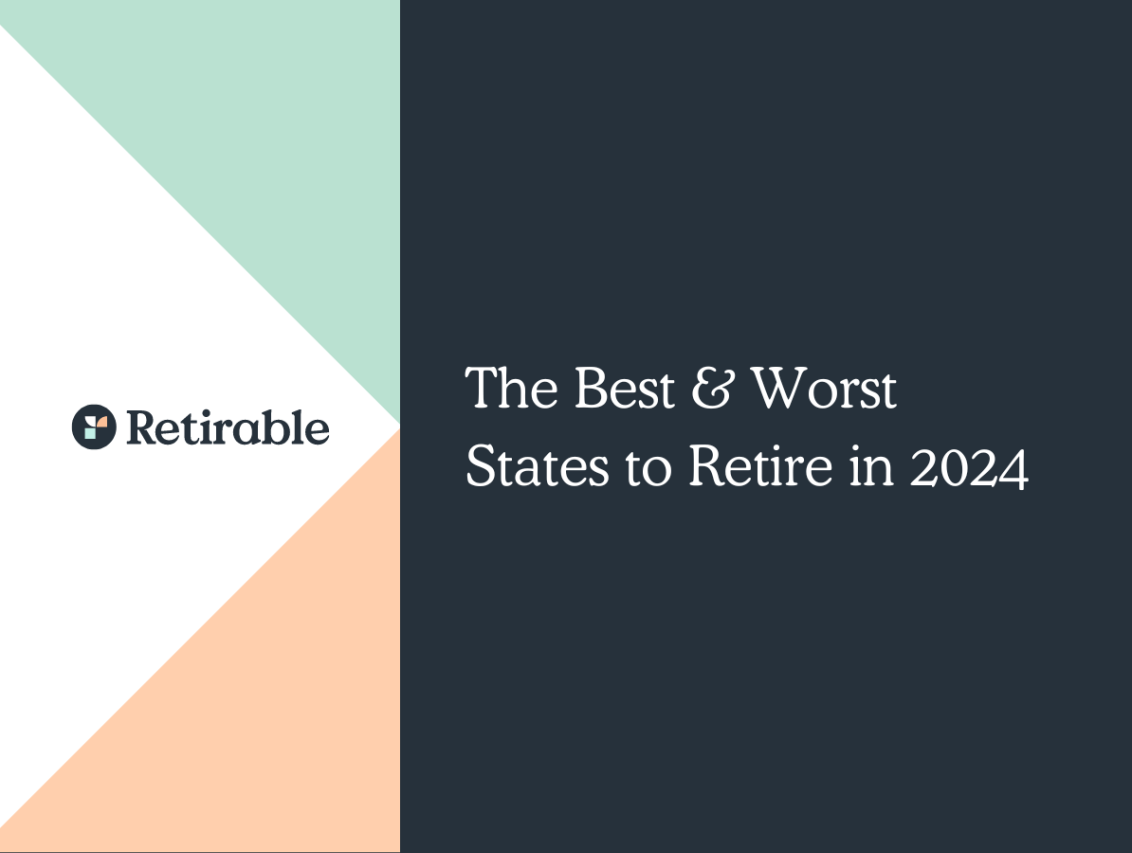Lifestyle
Retirement is full of choices. From where you spend your golden years to when to elect Social Security, there’s no shortage of key decisions for pre-retirees and retirees to make. One of the biggest decisions an individual can make in the time leading up to and in retirement is how they invest their nest egg to maintain their lifestyle and have enough money to last through retirement. This is exactly why you need a financial advisor throughout retirement.

John Thomas Lang
•
Published June 27th, 2023
Table of Contents
Key Takeaways
A financial advisor helps retirees protect their assets while maintaining growth beyond their highest earning years.
More than two-thirds (67%) of those nearing retirement have not met with an advisor to create a financial plan.
A financial advisor is often seen as a luxury for the wealthy. However, everyone can benefit from the guidance and planning a financial advisor can provide.
Retirement is full of choices. From where you spend your golden years to when to elect Social Security, there’s no shortage of key decisions for pre-retirees and retirees to make. One of the biggest decisions an individual can make in the time leading up to and in retirement is how they invest their nest egg to maintain their lifestyle and have enough money to last through retirement. This is exactly why you need a financial advisor throughout retirement.
Why you need a financial advisor for retirement
For many Americans, do-it-yourself financial planning in retirement is the norm and something they’ve come to expect. According to The State of Retirement 2023, more than two-thirds (67%) of respondents had not met with an advisor to create a financial plan, and less than one third (31%) have.
Why are so many Americans unprepared for such a big life change?
Why are so many Americans doing-it-themselves when resources are available?
What potential adverse outcomes will come from the Baby Boomer generation (approximately one-fifth of the U.S population) reaching the traditional retirement age of 65 by 2030?
How can this generation and future generations set themselves up for success to ensure they won’t run out of money in retirement?
Enter financial advisors. Perhaps the most helpful resource to ensuring a fulfilling retirement.
What can a financial advisor do for people in or near retirement?
A financial advisor is often seen as a luxury for the wealthy. However, everyone can benefit from the guidance and planning a financial advisor can provide. For retirees especially, a financial advisor can help you protect your assets while maintaining growth beyond your highest earning years. A financial advisor can help you secure your retirement future while leaving a lasting legacy for future generations.
While there’s no one-size-fits-all approach to financial planning or one “correct” type of financial advisor, one thing is clear: financial planning in retirement requires a different approach and a fresh set of eyes to ensure reliable income throughout retirement — no matter what the markets might throw at you.
Here are the 10 reasons you need a financial advisor for your retirement.
10 reasons you need a financial advisor for retirement
Retirement is full of uncharted waters. Social Security, Medicare 401(k) rollovers, required minimum distributions (RMDs), long-term care planning and more dot the landscape along the path to retirement. A financial advisor can help you see the entirety of this landscape and start to build a clearer picture out of a thousand different puzzle pieces.

1. Optimize your Social Security elections
Social Security eligibility begins at age 62, however, waiting to elect Social Security can pay dividends for you later in life. When considering the right time to take your benefits, it is always a good idea to understand the decision in the context of your overall retirement plan.
Some key questions that arise around Social Security:
- Are you planning to work past 62 because you enjoy your job? Or because you want to continue to grow your nest egg? Then it may be to your advantage to delay claiming benefits.
- Are you no longer working and have no desire to continue working? Do you have health and/or longevity concerns? It might be advantageous to elect Social Security earlier in life.
- Claiming spousal survivor benefits? A financial advisor can help to make sense of that too.
A financial advisor can help maximize your Social Security benefits by better understanding your holistic financial picture. Since Social Security is a key retirement income source for many, an advisor can work with you to ensure you won’t run out of retirement income later in life.

2. Build a financial plan for longevity
A financial plan is both an assessment of where your wealth is currently at and where you’d like it to be. It is a way to strategize for short-, mid-, and long-term goals to ensure that your future looks bright (and comfortable).
Most financial advisors start with a plan first, taking a holistic account of your money situation and help to forecast that forward throughout the remainder of your life. Building a sound financial plan for retirement should account for longevity needs, long-term care planning while also ensuring your lifestyle needs and goals are met in the near future. After all, what good is retirement if you can’t enjoy it while you’re young?

3. Customize an investment strategy to fit your lifestyle and income needs
Investment strategies vary greatly depending on your age. What’s good for someone in their 30s and 40s no longer fits the needs of a pre-retiree or retiree.
For example, the majority of your life you’ve been in the accumulation phase of investing — referring to the process of setting money aside for the day you leave the workforce. As you reach retirement, you enter the decumulation phase. The retirement decumulation phase refers to the period of time when you’re depleting assets rather than storing them. The rate at which you deplete those assets is unique to you. It will be different from the rate at which other retirees decumulate.
The 5-10 years leading up to retirement is a crucial time period for investors. Having a financial advisor by your side can help you tailor an investment strategy that matches your lifestyle and income needs while understanding the nuances of accumulation vs. decumulation.

4. Create reliable income throughout retirement
Approximately one-third of those surveyed in The State of Retirement 2023 feel like they have enough money to last them through retirement, leaving two-thirds uncertain of their future income. Calculating your retirement income can be challenging for many retirees and is often full of ifs, ands, tradeoffs and confusion.
Unsure of your retirement income needs?
Use our retirement calculator to better understand your future needsA financial advisor can help to make sense of your various retirement income sources (401(k)s, IRAs, pensions, Social Security and more), while developing a customized strategy to pull from your accounts in the most effective way. By mismanaging your retirement income sources, you could leave yourself susceptible to higher tax burdens, fees—and worse—running out of money. If you’re worried about inflation deflating your retirement income over time, a financial advisor can help you make sense of it all and hedge against some of these external factors beyond our control.

5. Always know what’s safe to spend
Decumulation is complicated. No one knows how long they’re going to live, and as medical science advances, people are living longer than ever. It’s very possible that you could live in retirement for thirty years. You need a spending strategy that plans for the longest horizon, and for all of the lifestyle changes that could occur in that thirty years.
A major part of hedging against inflation is having a clear understanding of what’s safe to spend each month. Having a solid—yet malleable—spending plan is crucial to safeguarding your retirement savings over time. A financial advisor can help you set up guardrails around spending during retirement.
Have plans to travel the world after you retire? No problem, a financial advisor can help you plan for that and ensure you have the funds to make your world tour a special one.
Want to make a big purchase? A financial advisor can help you move things around to keep things on track long-term while fulfilling your short-term needs.

6. Understand tax implications
As the old saying goes, two things are certain in life: death and taxes. Retiring doesn’t exempt you from either of those events. Tax implications are present in nearly every financial decision you make in the years leading up to retirement and as you start to decumulate your assets—withdrawing necessary income from your nest egg. If you withdraw strategically, though, you can potentially reduce your tax impact.
A financial advisor can help you better understand how to withdraw tax efficiently through retirement. Since most retirement accounts have different tax implications, your strategy may change depending on your goals. Some examples of these tax implications include:
- Withdrawals from your pension can be taxed at different rates by state
- Withdrawals from Roth accounts aren’t taxed, where as traditional defined-contribution accounts are taxed like ordinary income
- Investments in a taxable account may be subject to capital gains on growth (0 -20% depending on income levels). IRAs are not subject to capital gains taxes.
When it comes to taxes on retirement withdrawal, your Traditional 401(k) or Traditional IRA will probably come with the steepest tax bill. Exhausting those first could save you money down the line. You should also look at the taxability of your pension, since some states tax pension withdrawals as ordinary income.
Having trouble making sense of it all? You’re not alone. That’s where a financial advisor can step in to help you understand and optimize your tax implications.

7. Cultivate health and wealth
As mentioned early, all Baby Boomers and approximately one-fifth of the U.S population will reach the traditional retirement age of 65 by 2030. This milestone will also mark the first time in U.S. history where adults aged 65 and older will outnumber children under the age of 18. As these seismic shifts happen and this population continues to navigate a global pandemic, one sentiment is very clear: health and wealth go hand-in-hand during retirement.
Establishing a health care safety net and having the ability to adjust your financial plan as your health changes is crucial for retirement longevity. While we may not be able to fully control our health outcomes as we age, having a financial advisor in your corner to help you weather the storm financially will go a long way. Building in health care costs—both recurring and unexpected—is a must for a solid financial plan in retirement.

8. Plan for long-term care needs
For many retirees, thinking about the long-term care needs of themselves and their spouses can be a daunting thought. But, the facts are clear. The Administration on Aging estimates that at least 70% of people who are 65 today will require long-term care in some context. Americans spend $475.1 billion annually on long-term care and these types of services are not typically covered by Medicare alone.
The need for long-term care increases with age. As the number of people in the U.S. over the age of 65 increases, so will the demand for these services. A financial advisor can help to set up long-term care needs by ensuring you have the ability to pay for these services, should you need them.

9. Break down personal biases and bad habits
Like anything else in life, we all carry personal biases and habits that have an impact on our daily lives. For many, a financial advisor helps to bring a new perspective, break down personal biases and help to form good habits. These habits are never more important than in retirement, when your earning potential is less than your younger years.
Financial advisors can help to show new pathways towards success and help us better understand the long-term repercussions of our decisions.

10. Gain peace of mind
According to The State of Retirement 2023, more than 3 in 5 (64%) respondents plan to spend/are spending their retirement years maintaining their current lifestyle. This means spending time doing what you want to do and leaving the ins and outs of financial planning to the experts. For many pre-retirees and retirees, the anxiety they feel about their money in retirement can be alleviated with a trusted advisor relationship.
An advisor can deliver peace of mind by guiding your path, providing an expert companion by your side and making sure you’re set up to live your best retirement life. With a trusted advisor by your side taking care of the nitty gritty financial aspects of your retirement, you can build the memories and moments to cherish forever. Stop worrying about running out of money, put down the market watchdogs and live out your golden years to the fullest.
Getting started with a financial advisor has never been easier
For many previous generations, gaining access to a dedicated financial advisor hasn’t been an easy process. Fast forward to today and seemingly everyone is giving financial advice. However, not all financial advisors are created equally. Take the steps to understand what to look for, which questions to ask a prospective advisor and how to choose the right advisor for you.
Retirable is on a mission to create financial stability for every retiree.
By rethinking how to provide everyone with financial guidance for retirement, Retirable gives our clients greater control and peace of mind when they need it most. We know more than just investments. Health Care, housing, Social Security, and beyond — we can provide help with everything impacting your retirement. Get your FREE Retirable consultation today so you can spend retirement with more.
Share this advice

JT is currently VP, Marketing at Retirable. A proud Colorado Native now calling Chicago home, he has played a key role in scaling multiple $1B+ unicorn tech startups. In addition to his passion for improving financial wellness in his community, you can probably find JT digging through crates for vinyl records.
Share this advice

JT is currently VP, Marketing at Retirable. A proud Colorado Native now calling Chicago home, he has played a key role in scaling multiple $1B+ unicorn tech startups. In addition to his passion for improving financial wellness in his community, you can probably find JT digging through crates for vinyl records.
Free Retirement Consultation
Still have questions about how to properly plan for retirement? Speak with a licensed fiduciary for free.






